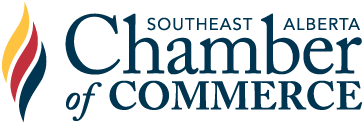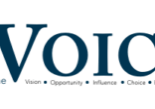As Canadians head to the polls for the 2021 federal election, the Chamber network continues to focus on 'What It Takes to Grow: Priorities for Canada's Next Parliament', which outlines the key priorities our members need to see from the parties to grow our economy.
To know where the political parties stand, the Canadian Chamber asked the five main parties a simple question:
"How will your party support businesses as the engine for growth to move our country from recovery to strong and sustained economic growth?"
Notes from the Debates...
- Health: Mr. O'Toole reiterated the commitment to health transfers to the provinces which have now been costed, indicating that the increase in health transfers would begin in three years with the majority of the $60B spending over ten years arriving at the back end of those years. Mr. Blanchet requested more health transfers to the provinces with no strings attached and Mr. Trudeau indicated more healthcare collaboration with the provinces is needed.
- Borders: Mr. O'Toole described a number of provisions for safe borders during the pandemic, including looking at vaccination numbers and requiring rapid testing. Mr. Trudeau said that international travel should not be a vector of transmission.
- Workforce: Both Mr. O'Toole and Blanchet discussed suspending the CRB and other programs as well as giving more powers to Quebec for immigration. Both Mr. O'Toole and Trudeau highlighted the need for a collaborative approach to labour training, skills, and immigration along with supports for hiring for small businesses. Mr. O'Toole reiterated the Conservative commitment to generating one million jobs in one year and supporting the hardest hit sectors by getting people back to work. Mr. Blanchet also highlighted the need to address the current labour shortage.
- Innovation: There was a short discussion on Bill C-10 and the digital services tax, with Mr. Singh indicating that web giants should be taxed at greater levels. Mr. O'Toole referenced the importance of cybersecurity during a debate on issues of international affairs.
- Climate: Mr. Trudeau underscored scientists' approval of the Liberal's climate plan. Mr. Blanchet asserted that there should be a cap on oil and gas and investments, including the Transmountain pipeline, and more resources should be dedicated towards clean energy. Ms. Paul requested a cross-party cabinet on climate change similar to the pandemic response efforts. Mr. O'Toole stated that Canada's resources industry is leading the way in ESG and should be supported in their efforts to meet emission targets. He also supported investing in hydrogen and zero-emissions vehicles. Mr. Singh committed to ending fossil fuel subsidies, supporting clean energy, and retrofitting homes and buildings.
- Finance: Ms. Paul committed to further investments in Canada's social safety net. Mr. O'Toole referenced the need to be careful with monetary policy and keep inflation low. He also asserted that the budget would be balanced within 10 years.
- Indigenous: Each party leader stressed that nation-to-nation dialogue and partnership along with reconciliation are greatly important. Mr. Trudeau referenced boil water advisories, commitments to partnerships and addressing MMIWG.
On the Campaign Trail...
The Liberals announced they would introduce legislation to protect healthcare workers from protests.
The Conservatives meanwhile detailed their childcare plans, which include expanding working while on claim benefits for low-income parents, allowing Canada Child Benefits to start in the seventh month of pregnancy, and creating a National Adoption Strategy that will have more generous benefits.
The NDP released the costing of their platform, which committed to $214 billion in new spending and various new sources of tax revenue. This includes tax increases on large companies and increases to personal income taxes.
The Liberals spoke to environmental policy, framing climate change as an environmental threat as well as an economic opportunity. Addressing plastic pollution was another theme from the Liberals. The Liberals also pledged one billion dollars to support provincial vaccine passport systems.
The Conservatives have recently reiterated their commitment to extend EI sickness benefits to 52 weeks, as well as introduce a Rebuild Main Street Tax Credit and a Rebuild Main Street Business Loan program.
Meanwhile, NDP Leader Jagmeet Singh was focussing on NDP commitments to raise taxes on high-income earners by closing tax loopholes and addressing tax evasion through additional resources for the Canada Revenue Agency.
The NDP focussed on $10/day daycare, $20 hourly minimum wage for federally-regulated employees, and expanding EI to cover more people.
The Bloc proposed making changes to EI to facilitate the ability of the self-employed to collect EI, increasing sick leave to 50 weeks, and providing better support to mothers who lose employment while on maternity leave.
The Liberals announced they would introduce legislation to ensure businesses that are requiring proof of vaccination for customers or employees will not face legal repercussions for doing so.
The Conservatives meanwhile spoke about plans to double the Canada Workers Benefit to $2,800 for individuals and $5,000 for families.
The five main party leaders also address Radio-Canada in a series of live, one-on-one interviews. English CBC has a summary available, meanwhile the French video interviews with Justin Trudeau, Erin O'Toole, Yves-Francois Blanchet, Jagmeet Singh and Annamie Paul are available from Radio-Canada. Each interview spans close to 30 minutes.
Find out more
The Canadian Chamber of Commerce Election 2021 recommendations: what it takes to grow
Election Platforms:
- Liberal Party
- Conservative Party of Canada
- New Democrats
- Green Party
- People's Party of Canada
- Maverick Party
- Bloc
Find out more through Elections Canada
View the information for the Medicine Hat-Cardston-Warner Riding and find out more about our local candidates


